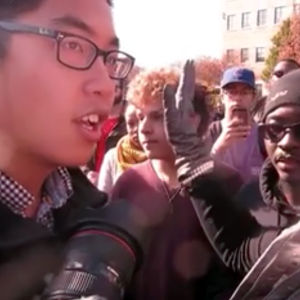Racism isn’t an issue confined to college campuses, but as the events of the past week at the University of Missouri have shown, the college environment can be a microcosm that highlights challenges our entire society is experiencing. The larger issue behind these protests is that higher education needs to play a more direct, hands-on role in addressing the huge inequalities that plague our country.
The old argument that educators are helping underserved communities simply by providing quality education is not supported by the evidence. Reams of data show that vision of higher education’s role is not nearly enough to create real change. Colleges and universities need to be hand-in-hand partners with public schools, nonprofits and the students themselves in order to turn around the sad statistics that show minorities continue to receive college degrees in numbers far smaller than white students.
Drop into many metropolitan high schools and walk into a ninth-grade classroom. What you will see is disenfranchised and disengaged students — and a large number of empty seats. Because by that point, many students have already started to miss large amounts of classroom time, or left school entirely.
That’s why college faculty and students should be in their community’s public schools as soon as pre-kindergarten — in the reading classes, in playtime, and mentoring students in afterschool programs. Studies from the Chicago Urban League Department of Research and Planning show that the future is practically sealed for African-American males in major metropolitan areas who have fallen behind in reading by the third grade. Their likelihood of going to prison as an adult is 80 percent. That’s a huge price to pay for those students and for society.
The Port Richmond Partnership that my school, Wagner College, has formed with our community’s public schools on Staten Island is already making a difference in the lives of students who wouldn’t have otherwise considered applying for college.
As part of that effort, Wagner sponsors the Leadership Academy, a five-week summer intensive program aimed at rising high school juniors and seniors from the surrounding community who would not be expected to apply to or attend college.
In just two years, the program has already produced results for Port Richmond High School students:
—Every single student enrolled in the program is applying for college.
—Students are more engaged in school. For example, one student is able to choose early graduation as a result of being involved in the program.
—Students who, before participation in the Leadership Academy, had grades in the middle of the pack are now top of their class.
—Students have taken on leadership roles within their school and in their community as well.
This approach is generating positive results at Wagner and other academic institutions across the country that are making a commitment to true civic engagement with their communities. This is the kind of activist, collaborative, community-focused vision for higher education that has the potential to change the trajectory of our nation’s long struggle toward true equality.

